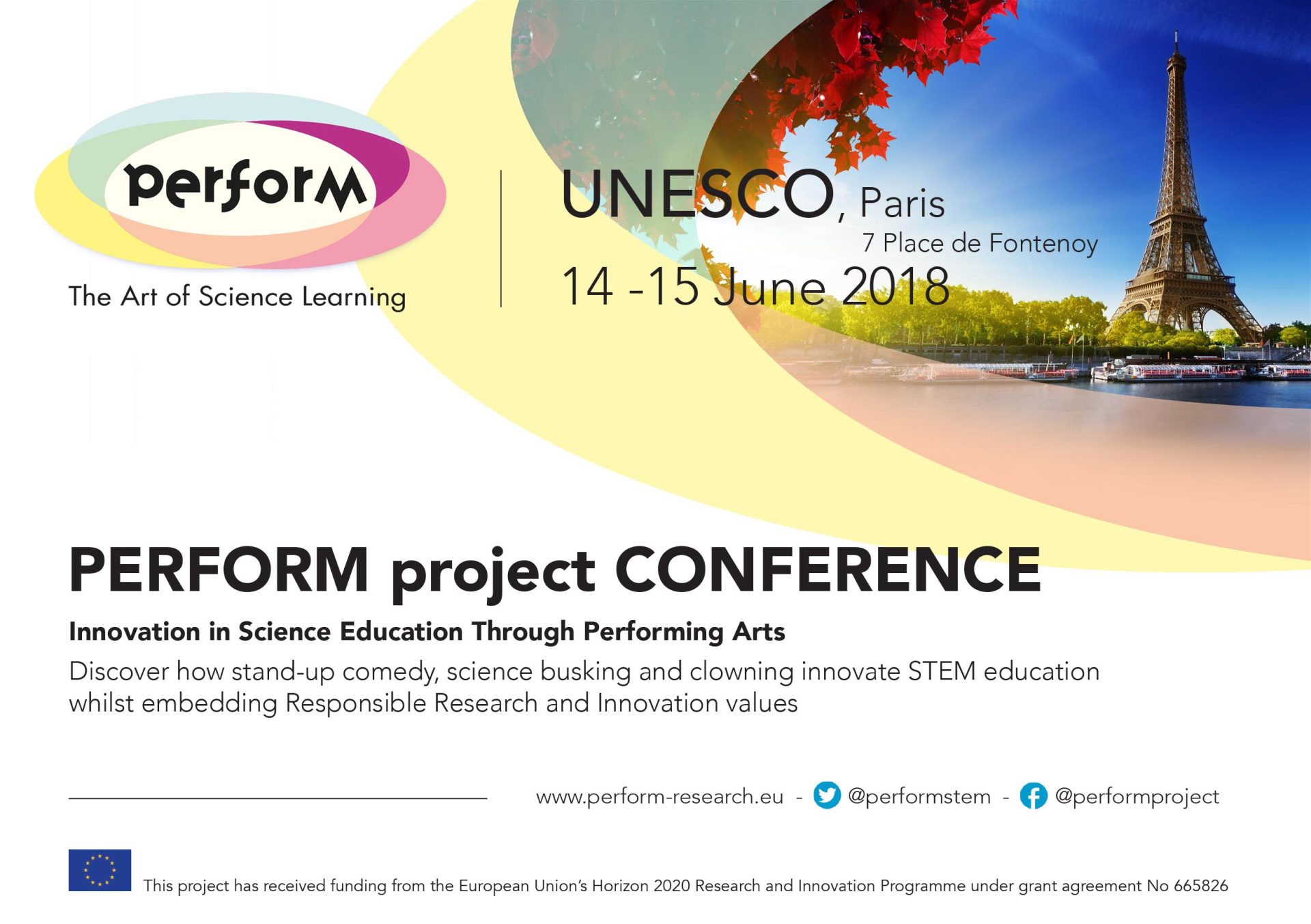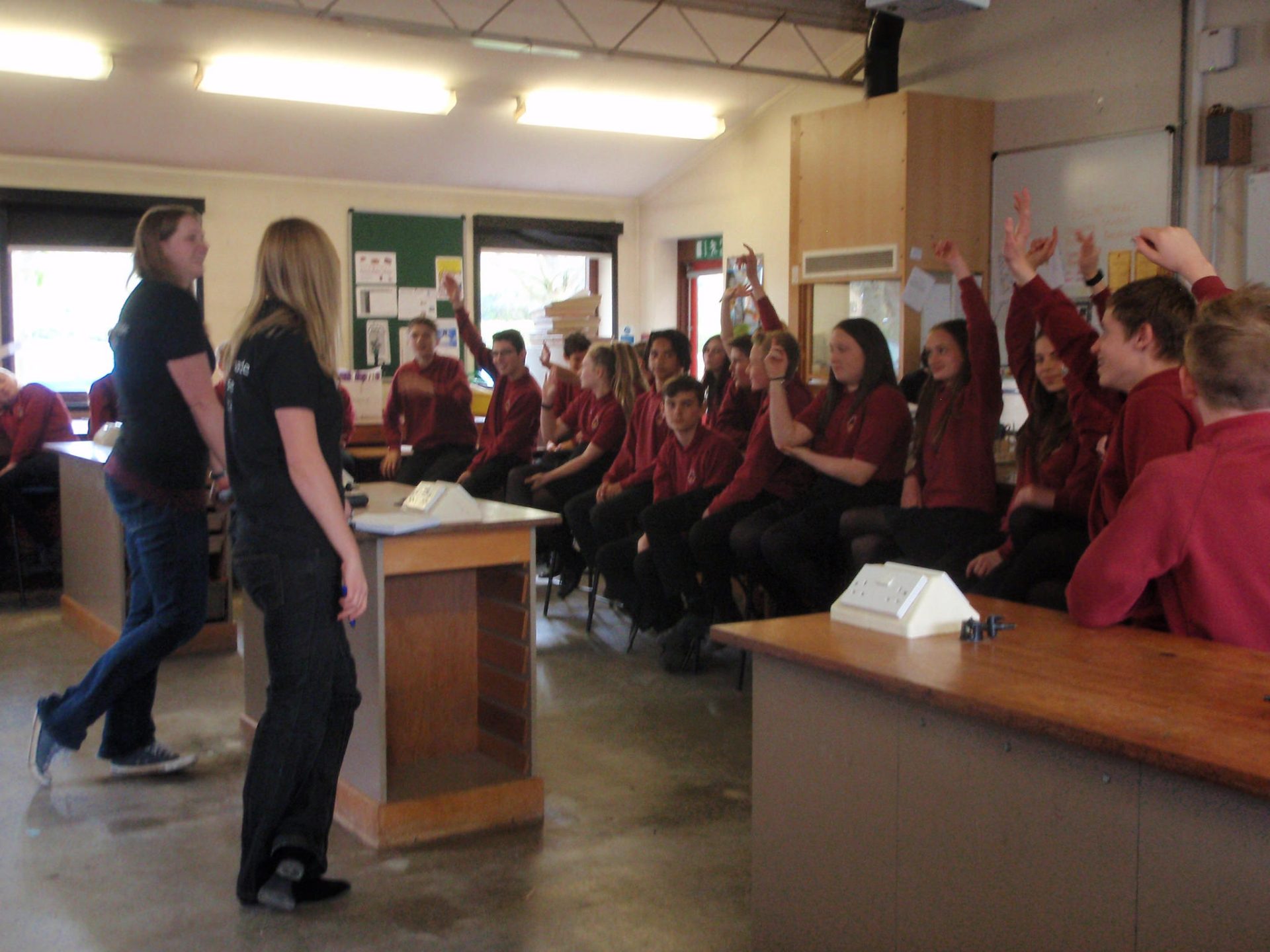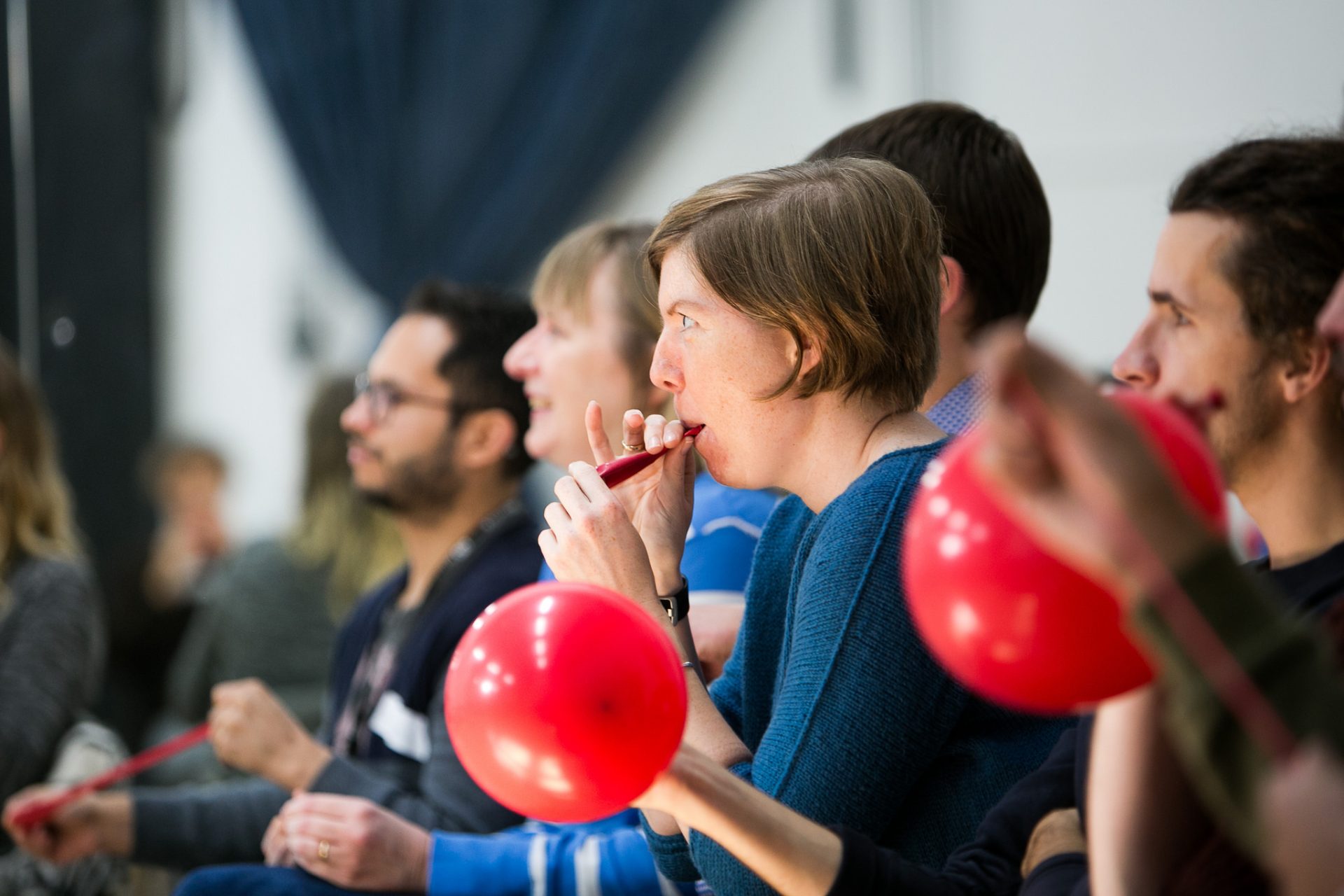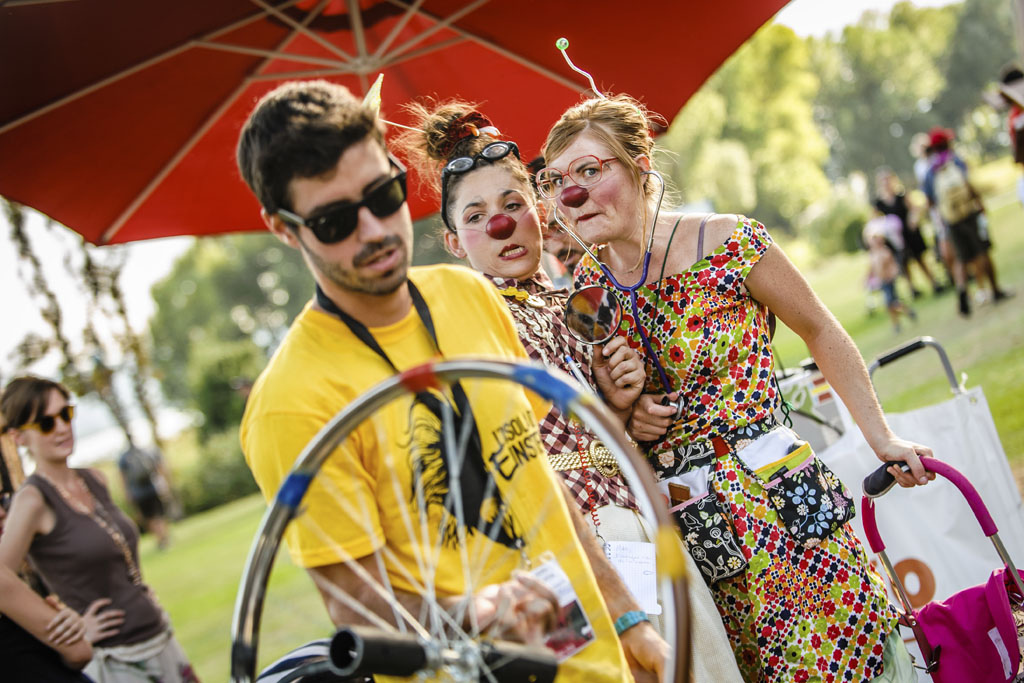Perform is a project funded by the European Union under its Horizon 2020 framework program to innovate science education methods. It aims to combine performing arts and scientific research through participatory learning processes involving students from secondary schools, their teachers, early career researchers and science communicators. A team of European research institutions and professional performers with a longstanding experience in science and technology communication have been working over the last two yeas to evolve the way science shows and performances can incorporate students expectations, values, reflections around the wide concept of responsibility in research and innovation.
Finding the right indicators to assess the implementation of RRI values in science education
To better answer this question María Heras, researcher at the Institute of Environmental Science and Technology (ICTA) of the Autonomous University of Barcelona (UAB) and Isabel Ruiz-Mallén, coordinator of the PERFORM project, Ramón y Cajal senior Research Fellow at the IN3-Open University of Catalonia (UOC), and associated researcher at the ICTA recently developed a study aiming at identifying possible indicators of RRI values implementation in the everyday practice of science education.
The multi-skilled researcher
How to train early career researchers developing cross-disciplinary skills to act in a complex society?
Researchers are facing a set of new challenges in their everyday job: being excellent by developing relevant results with their research wisely combined with good communication abilities and with a clear view of the social challenges and sustainable solutions related to their work. A complex society needs, in fact, a cross-disciplinary approach to tackle issues and solve problems. A complex society seems to demand for a reflexive and multi-skilled researcher. What does this mean both in practice and, consequently, in the way early career researchers are trained? Many European projects are addressing this question and PERFORM is among them proposing a unique and ambitious approach: answering this question from the peculiar perspective of performers, researchers and teachers working together to innovate STEM education embedding the human dimension of research, combining facts and stories, scientific endeavours and social challenges.
Reflexivity on stage
Beyond the science show effect. How to develop a science performance embedding the human dimension of science and the paradigm of responsible research?
For a long time science shows have been and still are a key tool to engage with a diverse audience ranging from children to older students or adults and families, while talking about research in science and technology. The art of bringing phenomena on stage combining theatrical skills and communication strategies with scientific contents is one of the main features of the professionals in this field. But in almost all the cases performances are conceived and developed by communicators or scientists and the audience actively comes into the play when the performance is taking place, most of the time as spectators, not passive at all but in a way alien to the process that led to the show development and design. What the PERFORM project has been doing over the last two years is to turn this perspective upside down combining performing skills with reflexivity and the participation of different actors who are relevant to design and implement a show embedding the values of responsible research and innovation (RRI).
PERFORM going global
Meet the PERFORM team around the world
During the last two years over 20 national and international meetings and conferences hosted the PERFORM project partners, sharing the project philosophy, structure and results. Ranging from Europe, Asia and the Middle East, and addressing different communities from European science engagement and communication conferences to educators networks conferences and to the science, economical and political actors at the World Science Forum held in Jordan last November 2017, the PERFORM project was presented to a wide and diverse set of stakeholders. The diversity of these contexts was an opportunity to discuss the interdisciplinary nature of the PERFORM endeavour and to confirm teachers’ interest, as well as of performers, professional science communicators and early career researchers or policy makers in the project topics and approach. The PERFORM project results are increasingly attracting the attention of all these communities around the world and future meetings in 2018 confirm this trend and will be an opportunity to dive into the project achievements exactly during its crucial year.
Mee t the PERFORM innovators in Paris
t the PERFORM innovators in Paris
14-15 June 2018: the PERFORM final conference
A two-day experience for teachers, students, early career researchers and professional science communicators to discover what happens when performing arts are combined with the paradigm of Responsible Research and Innovation to generate new methods for STEM education. On the 14th and 15th of June 2018 the headquarters of UNESCO in Paris will host the final conference of the PERFORM project, a unique opportunity to meet international communities of educators, scientists, communicators and artists exploring together the four topics around which the programme conference is organized.
STEM Discovery Week 2018 is a joint international initiative that invites projects,
organisations and schools across Europe and around the world, to
celebrate careers and studies in the fields of Science, Technology, Engineering and Mathematics (STEM). The tagline for this year’s campaign “say yes to STEM” describes the partners’ open-minded and dedicated support to STEM subjects at school, as well as wide-ranging collaboration among stakeholders in the area. Interested to become a partner?




